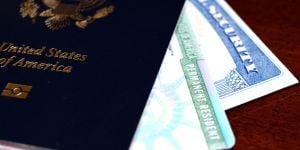
While many countries have chosen to keep their borders until further notice, rejecting all new visa applications, some, like Australia and Canada, are taking a different approach. In fact, Australia has just announced a series of changes regarding student visa applications while Canada is still accepting visa applications in specific categories amidst the COVID-19 crisis. Find out more.
Australia to welcome international students from 2021
For those who dream of studying in Australia, here's some good news. This week, the Australian government announced new measures for student visa applications, taking into account the significant contribution of the presence of international students to the national economy - nearly $ 40 billion annually. What does this mean in practice? Although border restrictions are still on, international students can start submitting their visa applications. Once the travel restrictions are lifted, they will just need to book their flight to Australia. Also, additional time will be granted to students who are required to prove their language proficiency.
Those who were unable to complete their studies during the crisis and wish to extend their student visa are exempt from the applicable fees. For graduates who are student visa holders and are currently abroad, they are eligible for the Post-Study Work Visa which will allow them to come back to Australia as soon as border restrictions are lifted. This measure also applies to international students who opted for distance learning until they can travel to Australia. You will recall that Australia announced that it will keep its borders closed until 2021. But as you might have observed, there are exceptions.
Canada: Boom of the Express Entry program
Canada is not likely to reach its goal of welcoming 341,000 newcomers in 2020. Still, it is looking at attracting foreign professionals in order to boost its economy. It's worth noting that international students who were granted a study permit before March 18, 2020, were exempt from the travel restrictions. However, they were required to comply with certain conditions, such as a health check before the trip, and having a letter of entry proving that their application for a study permit was approved on or before March 18, 2020. Also, they were quarantined for 14 days, including those who had no COVID-19 symptoms.
This measure also applies to temporary workers, provided that they are in possession of a letter proving that their work permit application was approved no later than March 18. There was a boom in the Express Entry program during the pandemic, despite the border closures. In the first quarter of 2020, nearly 50,000 invitations had been issued, compared to 41,800 in mid-2019, which is rather impressive in times of crisis. Also, more than 21 draws have already been made, compared to 12 during the same period last year. The Canadian government clearly recognises the contribution of immigrants to the national economy and wishes to attract more of them with new incentives. Foreign workers are also encouraged to apply for the Provincial Nominee Program even if they are currently unable to produce all documents, as long as they can produce an explanatory letter for the missing information.
New Zealand wants to attract critical skills
Faced with the shortage of skills in critical sectors, the New Zealand government amended its visa policy during the crisis. While borders will remain closed until further notice, employers are authorised to hire critical workers for short and long term projects. However, only sponsors, government agencies and immigration specialists can apply, provided the skills that are being sought are not locally available. To qualify as a "critical worker", you must have essential skills either for a major infrastructure project, or for an event approved by the government, or for a government program, or as part of a government reciprocity agreement or be beneficial to the regional or national economy. These requests are considered on a case-by-case basis, but there is no guarantee for approval.
Which countries that have reopened their borders?
Several countries, like in the Middle East and Asia, prefer to play it safe by keeping their borders closed until the world recovers from the COVID-19 crisis. They have even announced on their official websites that any new visa application will not be processed for the time being. The USA, Brazil, Russia and Turkey, are not likely to reopen their borders anytime soon given the daily rise in the number of cases.
Other countries, like those in the European Union, are gradually reopening their borders to certain nationalities. While Europeans are allowed to travel throughout Europe since mid-June, third-country nationals are bound by reciprocity agreements. These include Australians, Canadians, Japanese, New Zealanders, South Koreans, Moroccans, etc. However, travellers may have to comply with certain conditions. Denmark, for its part, reopened its borders to most EU countries since June 27, except for Sweden, Portugal, Luxembourg, and a number of third countries.
Keep an eye on the European Union's list, which is updated every two weeks, before booking your flight. Also, note that certain nationalities travelling within the EU may have to undergo health checks and be quarantined upon their arrival.



















